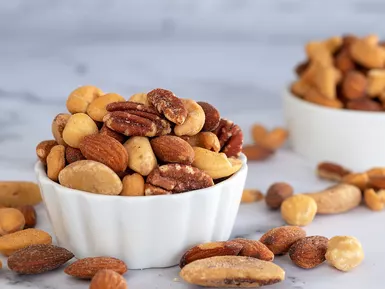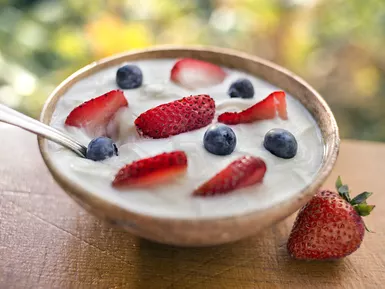
Debunking 5 Sugar Myths for Successful Weight Loss
Introduction
When it comes to losing weight, sugar has long been demonized. However, not all sugar is created equal, and there are several myths surrounding its role in weight gain and loss. In this blog post, we will debunk five common myths about sugar and provide you with evidence-based strategies to help you achieve your weight loss goals.
Myth 1: All Sugar is Bad for Weight Loss
One of the most common myths about sugar is that all sugar is bad for weight loss. While it is true that consuming excessive amounts of added sugars can contribute to weight gain, not all sugars are created equal. Natural sugars found in fruits and vegetables, for example, are accompanied by fiber, vitamins, and minerals, which can help to slow down the absorption of sugar into the bloodstream and prevent spikes in blood sugar levels. Additionally, these natural sugars are typically found in foods that are also low in calories and high in nutrients, making them a healthy addition to a balanced diet.
On the other hand, added sugars, such as those found in processed foods, sugary drinks, and desserts, are often high in calories and low in nutrients. Consuming excessive amounts of added sugars can lead to weight gain, insulin resistance, and other health problems. Therefore, it is important to limit your intake of added sugars and focus on consuming natural sugars from whole foods.
Myth 2: Artificial Sweeteners are a Healthy Alternative to Sugar
Another common myth about sugar is that artificial sweeteners are a healthy alternative to sugar. While artificial sweeteners are often used as a sugar substitute in processed foods and beverages, they are not without their own health risks. Some studies have suggested that artificial sweeteners may be linked to an increased risk of obesity, diabetes, and other health problems. Additionally, artificial sweeteners may not be as effective as natural sugars in satisfying your sweet tooth, which can lead to overeating and weight gain.
Therefore, it is important to limit your intake of artificial sweeteners and focus on consuming natural sugars from whole foods. If you do choose to use artificial sweeteners, be sure to choose a high-quality product that is free from harmful chemicals and additives.
Myth 3: You Need to Cut Out Sugar Completely to Lose Weight
While it is true that consuming excessive amounts of sugar can contribute to weight gain, you do not need to cut out sugar completely to lose weight. In fact, cutting out sugar completely can be difficult and may lead to feelings of deprivation and cravings. Instead, it is important to focus on reducing your intake of added sugars and choosing natural sugars from whole foods.
One way to reduce your intake of added sugars is to read food labels carefully and avoid products that contain high amounts of added sugars. Additionally, you can try substituting natural sweeteners, such as honey, maple syrup, or stevia, for sugar in your recipes. These natural sweeteners are typically lower in calories and may be a healthier alternative to sugar.
Myth 4: Sugar Causes Insulin Resistance
Insulin resistance is a condition in which the body's cells become less responsive to insulin, a hormone that helps to regulate blood sugar levels. When the body becomes insulin resistant, it may be more difficult for the body to process sugar, which can lead to high blood sugar levels and other health problems. While sugar consumption has been linked to insulin resistance, it is not the only factor that contributes to this condition.
Other factors that can contribute to insulin resistance include obesity, physical inactivity, and a diet high in processed foods and saturated fats. Therefore, it is important to focus on maintaining a healthy weight, getting regular exercise, and eating a balanced diet that is rich in fruits, vegetables, whole grains, and lean proteins.
Myth 5: You Can Burn Off Sugar by Exercising
While exercise is an important part of a healthy lifestyle, it is not a substitute for a healthy diet. While exercise can help to burn calories and improve your overall health, it is not possible to burn off all of the calories from sugar through exercise alone. In fact, consuming excessive amounts of sugar can actually make it more difficult to lose weight and maintain a healthy weight.
Therefore, it is important to focus on reducing your intake of added sugars and choosing natural sugars from whole foods. Additionally, you can try incorporating more physical activity into your daily routine to help burn calories and improve your overall health.
Conclusion
In conclusion, there are several myths surrounding the role of sugar in weight gain and loss. While it is true that consuming excessive amounts of added sugars can contribute to weight gain, not all sugars are created equal. Natural sugars found in fruits and vegetables, for example, are accompanied by fiber, vitamins, and minerals, which can help to slow down the absorption of sugar into the bloodstream and prevent spikes in blood sugar levels. Additionally, these natural sugars are typically found in foods that are also low in calories and high in nutrients, making them a healthy addition to a balanced diet.
Therefore, it is important to focus on reducing your intake of added sugars and choosing natural sugars from whole foods. Additionally, you can try incorporating more physical activity into your daily routine to help burn calories and improve your overall health. By following these tips, you can achieve your weight loss goals and improve your overall health and well-being.
FAQ
Q: How much sugar should I consume per day?
A: The American Heart Association recommends that women consume no more than 6 teaspoons (25 grams) of added sugars per day, while men should consume no more than 9 teaspoons (36 grams) of added sugars per day. However, it is important to note that these recommendations are for added sugars only and do not include natural sugars found in fruits and vegetables.
Q: Can I still eat sugar if I have diabetes?
A: If you have diabetes, it is important to monitor your blood sugar levels closely and to follow a healthy diet that is low in added sugars. While you may still be able to eat sugar in moderation, it is important to choose natural sugars from whole foods and to avoid processed foods and beverages that are high in added sugars.
Q: What are some healthy alternatives to sugar?
A: Some healthy alternatives to sugar include natural sweeteners, such as honey, maple syrup, or stevia, as well as fruits and vegetables that are naturally sweet. Additionally, you can try using spices, such as cinnamon or nutmeg, to add flavor to your food without adding sugar.
Call to Action
If you are looking to lose weight, it is important to focus on reducing your intake of added sugars and choosing natural sugars from whole foods. Additionally, you can try incorporating more physical activity into your daily routine to help burn calories and improve your overall health. By following these tips, you can achieve your weight loss goals and improve your overall health and well-being. So, what are you waiting for? Start making small changes to your diet and lifestyle today and see the results for yourself!

5 Transformative Weight-Loss Resolutions for Success

Workout Routines & Beyond: Science-Based Weight Loss

Vitamin E and Weight Loss: Unveiling the Truth

Effective Strategies to Lose Midriff Fat for Women

8 Non-Scale Victories in Your Weight-Loss Journey

Unveiling the Ornish Diet: A Path to Sustainable Weight Loss

The Power of Social Support in Weight Loss

Personalized Weight Loss: 4 Strategies for Success

Long - Term Weight Loss: Maintaining Healthy Habits

